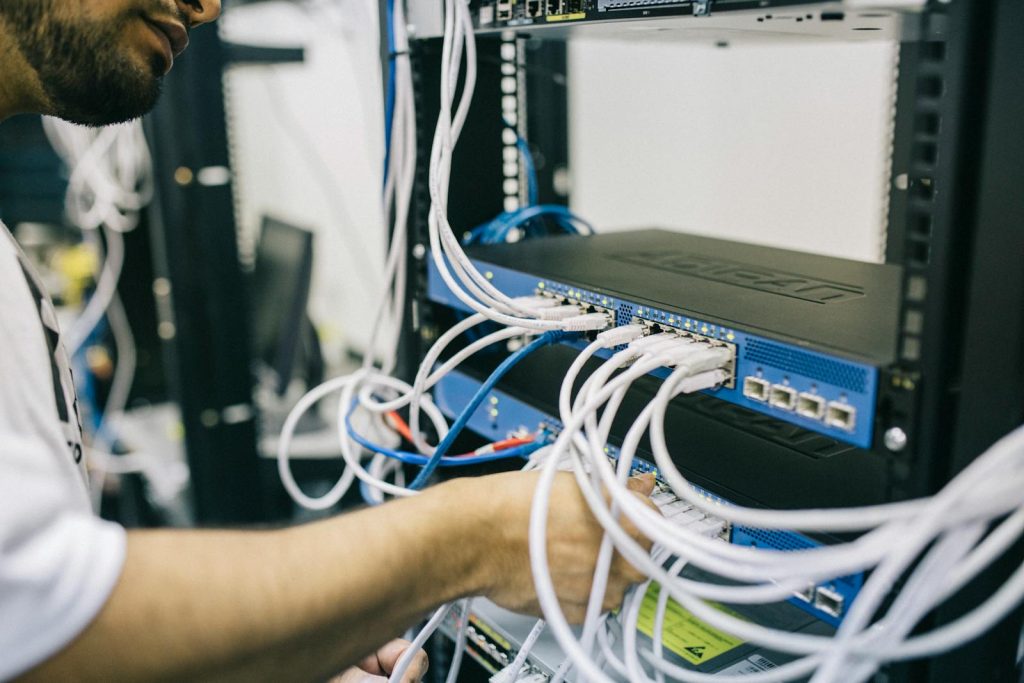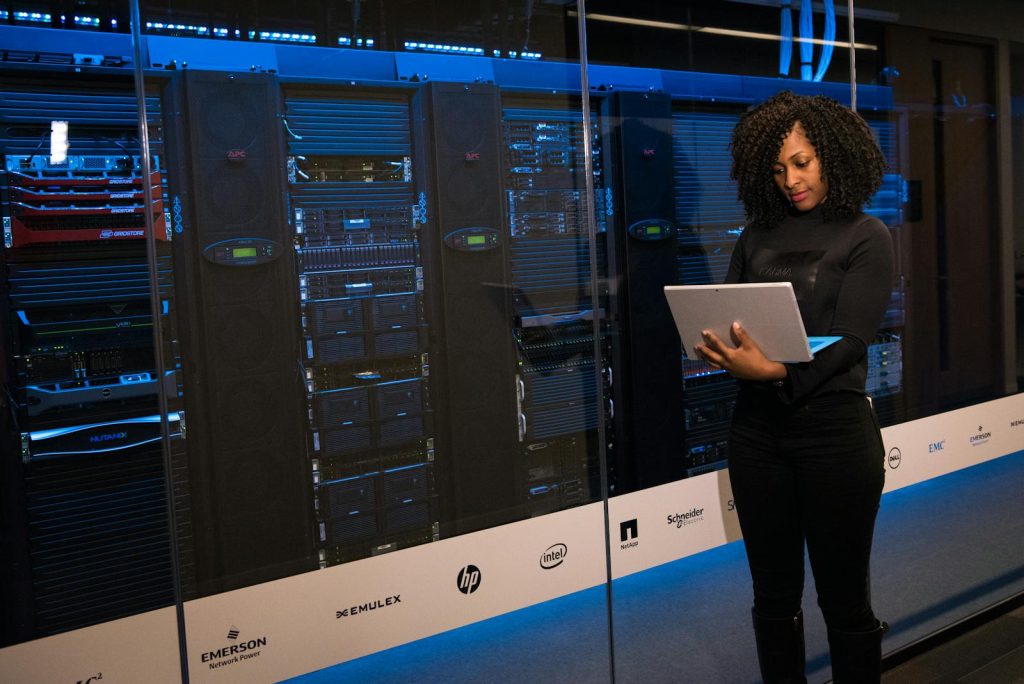Choosing the right hosting solution for your website can be a daunting task, especially with the myriad of options available. The Complete Dedicated Hosting Buyer’s Guide is here to simplify this process for you. Whether you’re a business owner looking to scale, a developer seeking more control, or a hobbyist wanting the best performance for your personal projects, this guide covers everything you need to know about dedicated hosting. From understanding the basics to evaluating key features and comparing top providers, we’ll help you make an informed decision that suits your unique needs.
Understanding Dedicated 
Dedicated hosting means you have an entire server dedicated solely to your website. Unlike shared or VPS hosting, you’re not sharing resources with other users. This exclusivity translates to enhanced performance, greater security, and full control over server configurations.
Since your website is the sole occupant of the server, it can load web pages much faster than a server handling multiple websites. Additionally, you have the freedom to configure the server exactly to your needs.
Even better, having your own server allows you to create a more stable and secure environment for your website. The risk of downtime and cross-site infections is significantly reduced since your site is the only one on that hardware.
Furthermore, with ample resources available, your server can easily manage even the most sudden traffic spikes. This makes dedicated hosting an excellent choice for large websites or businesses planning to expand.
When to Consider Dedicated Hosting

If you’re considering dedicated hosting for your website, here are some scenarios where it might be a perfect fit:
1. You Have a Large, High-Traffic Website
Dedicated hosting is ideal for large websites that handle high traffic volumes. Unlike shared hosting, where multiple sites compete for bandwidth, dedicated hosting ensures your website gets the resources it needs for fast and consistent performance. This is especially beneficial for high-traffic sites or large e-commerce stores, as it allows for smooth handling of numerous simultaneous requests.
2. Your Focus Is on Security
With dedicated hosting, you’re the only one accessing your server, giving you complete control over security measures. This is crucial if your website handles sensitive data, such as payment information or personal details, which are prime targets for cyberattacks. In contrast, shared hosting poses a risk since an attack on one website can affect others on the same server. Dedicated hosting isolates your server, effectively quarantining your site from potential vulnerabilities elsewhere.
3. You Can Stretch Your Budget
Dedicated hosting offers significant advantages, but it comes at a higher cost compared to shared hosting or VPS. If you have the budget, the investment is worthwhile due to the unmatched performance, control, and flexibility dedicated hosting provides. However, if your budget is tight, you might need to consider more affordable options.
4. You Want Experienced Management Options
If you’d rather focus on growing your business than managing server performance, dedicated hosting is a smart choice. Hosting providers manage your server around the clock, ensuring optimal hardware functionality and uptime. This allows you to concentrate on your business without worrying about server maintenance.
5. You’re Anticipating Major Growth
Planning for future growth? Starting with dedicated hosting can save you the trouble of migrating servers later. This proactive approach ensures you have the necessary resources in place as your website expands. While other hosting options allow for scaling, they often come with resource limitations and potential price hikes. Dedicated hosting, on the other hand, provides ample room for growth from the outset.
Key Benefits of Dedicated Hosting
- Performance and Reliability: With dedicated hosting, your website benefits from the full server’s processing power, memory, and bandwidth. This results in faster load times and the ability to handle high traffic volumes without compromising performance.
- Enhanced Security: Since you’re not sharing the server with other websites, the risk of cyber threats is significantly reduced. You have full control over security measures, allowing you to implement robust defenses tailored to your needs.
- Customizability: Dedicated servers offer the flexibility to customize the server environment to match your specific requirements. You can choose the operating system, control panel, and software that best suits your website’s needs.
- Scalability: As your website grows, dedicated hosting provides the scalability needed to accommodate increasing traffic and resource demands. You can upgrade server specifications to match your growth without the limitations imposed by shared resources.
The Drawbacks of Dedicated Hosting
While dedicated hosting comes with many advantages, it’s important to understand its downsides:
- Cost Dedicated hosting is among the priciest options available, especially when compared to shared hosting. If you won’t use all the resources it offers, you might find a more budget-friendly solution elsewhere.
- Responsibility Although hosting providers offer some guidance, you’re usually in charge of your site’s security and upkeep. This makes an unmanaged dedicated server a poor choice if you lack the time or skills to manage a server.
- Resource Types Dedicated hosting isn’t always the best fit and can sometimes be overkill, depending on your site’s needs. It’s great for handling large media files, running numerous scripts, and managing high web traffic, but not every site requires these capabilities.
If you think dedicated hosting isn’t right for your website, consider other options. VPS hosting, for example, offers a good balance of server customization, security, and resource isolation at a much lower cost.
Key Considerations When Choosing A Dedicated Web Host
Selecting the right dedicated web host involves evaluating various factors to ensure you get the best server for your needs. Here are some critical elements to consider:
1. Server Type Dedicated servers can be used for various purposes such as emails, websites, and gaming. You have the option to choose standard servers suitable for small to medium-sized businesses or opt for enterprise solutions tailored to larger organizations.
2. Storage Solutions A significant advantage of dedicated hosting is the additional storage it offers. Ensure the server meets your storage needs. For instance, Cupisweb provides 2 TB of file storage and RAID storage. With multiple hard drives and RAID 1 redundancy, if one drive fails, another takes over, preventing unexpected downtime.
3. Number of Cores The Central Processing Unit (CPU) with multiple cores allows simultaneous execution of multiple processes, ensuring the server maintains high performance even with demanding applications.
4. Random Access Memory (RAM) RAM is crucial for your site’s performance. The required amount depends on factors such as transaction volume, traffic levels, and the number of applications running. More RAM typically means better performance, especially under heavy load.
Managed vs. Unmanaged Hosting
You also need to decide between managed and unmanaged hosting:
- Managed Hosting: In this setup, your host handles the technical aspects of server maintenance, including backups and security monitoring. Cupisweb’s managed dedicated server hosting offers a robust solution, featuring root access, enhanced memory, faster speeds, and guaranteed 100% uptime. Additionally, you benefit from DDoS protection, constant monitoring, and 24/7 support.
- Unmanaged Hosting: With unmanaged hosting, you are responsible for all monitoring and maintenance tasks. This includes administrative duties, backups, and security management. Unmanaged hosting is ideal for users with advanced technical knowledge and the time to handle these responsibilities.
By carefully considering these factors, you can choose a dedicated web host that best fits your specific requirements.
Dedicated hosting is an excellent choice for websites that demand high performance, security, and customization. By understanding the benefits and carefully evaluating providers based on hardware, management options, support, security, and cost, you can choose the best dedicated hosting solution for your needs. Investing in dedicated hosting can significantly enhance your website’s capabilities and user experience, making it a worthwhile consideration for serious website owners.

